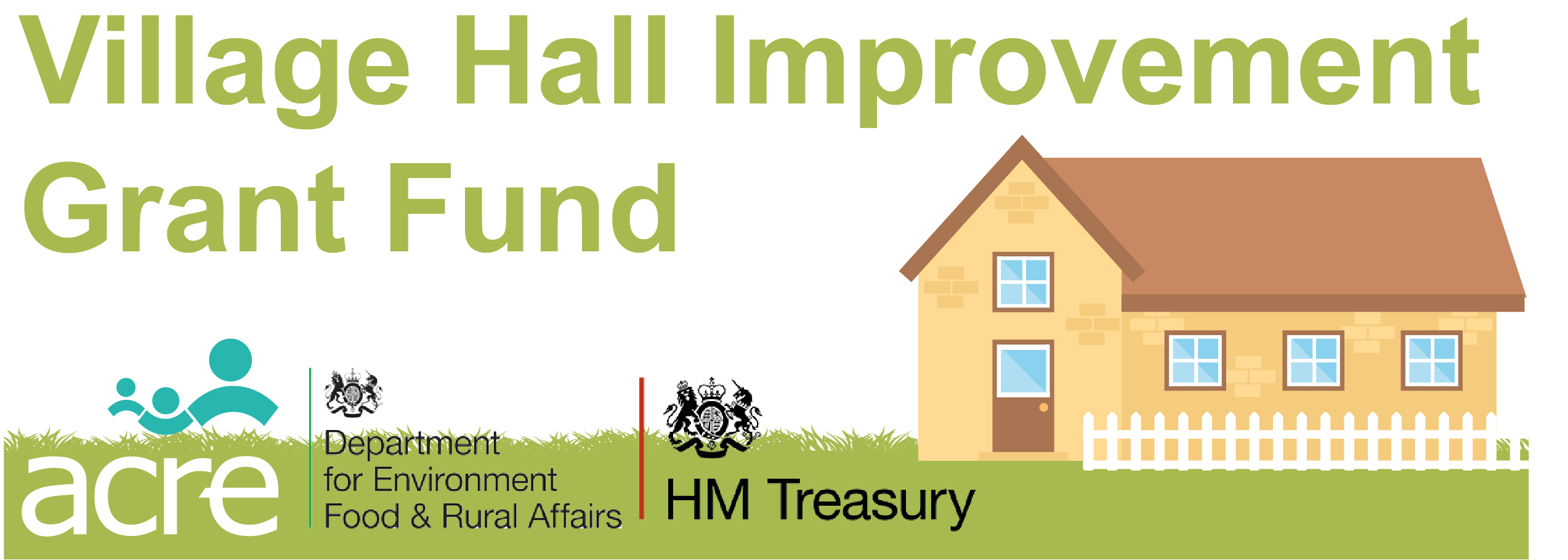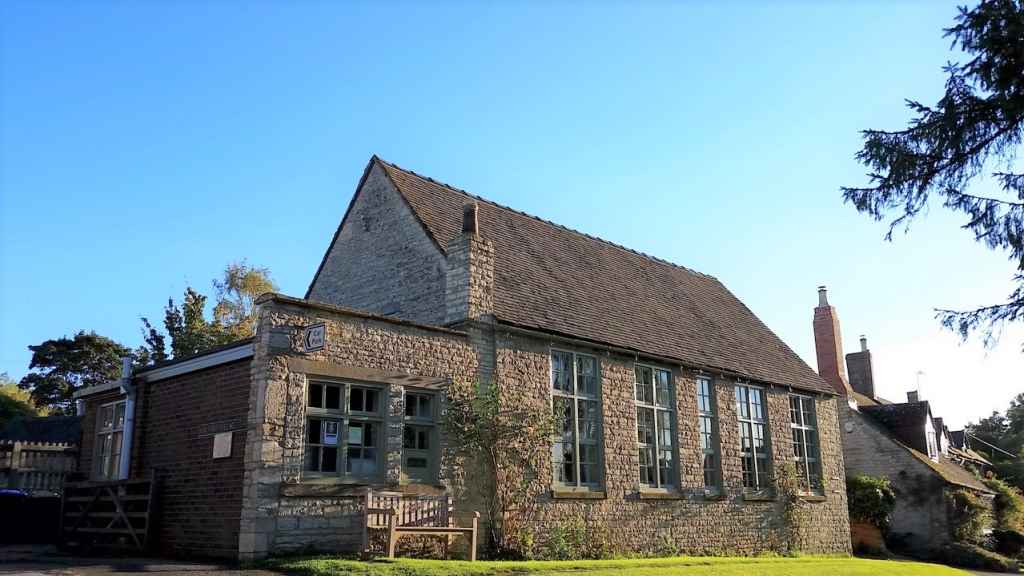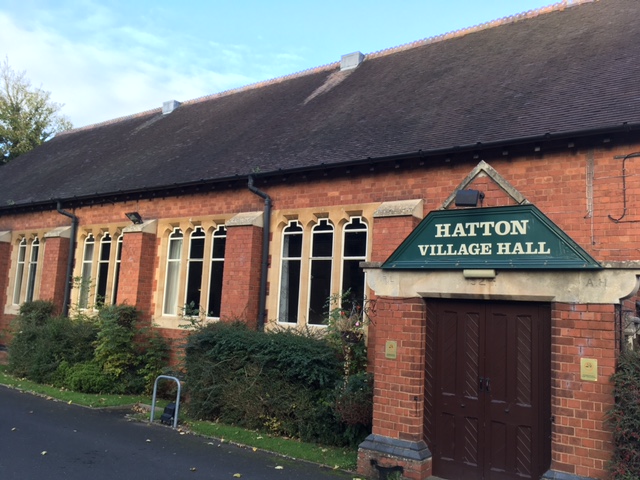
Village Hall Improvement Grant Fund
The Autumn 2018 budget announced that, to mark the centenary of the Armistice, the government would support rural communities by making grant funding available to support improvement projects for village halls. This fund is to be managed by ACRE (Action for Communities in Rural England) on behalf of DEFRA.
The scheme was launched in April at an event in Oxton Village Hall, Nottingham by Defra Minister for Rural Affairs Lord Gardiner, and Nottingham MP Robert Jenrick
At the event Mr Jenrick acknowledged the importance of village halls saying, “Village halls are at the heart of rural communities; places where people come together.” He also shared his understanding that “it’s challenging for communities to raise funds.”
Lord Gardiner said, “This launch is to see how we can enhance and improve the facilities, and this will make a big difference for a large number of communities with village halls.”
In Warwickshire there are over 400 village halls, all playing an important part in underpinning local community life, and all run by willing volunteers, who give their time and energy into providing a safe and welcoming hub for their community.
Many halls are undergoing a process of rejuvenation, both in terms of building works and in the activities that are provided, and all with the emphasis on the well-being of local residents-reducing social isolation, improving health and fitness and strengthening local communities.
To provide help and assistance to halls and community buildings, WRCC has a dedicated Village Hall Advisor, Verney Jeynes.
Verney can offer information and advice – both face-to-face and through a range of publications provided by ACRE, which can help village hall trustees, ensuring that they manage their halls in accordance with governance and health and safety best practices, and by providing networking opportunities.
One of the biggest challenges for all trustees is raising funds for their halls, and the subsequent 20% VAT payable on any work can be a significant sum which, in most cases, cannot be recovered.
The Village Hall Improvement Grant Fund hopes to address this by providing funding for village halls so that they are fit for purpose and provide activities which seek to achieve one or more of the following outcomes for their communities:
- Improved health and wellbeing/reduction in loneliness
- Demonstrates a positive impact on the environment
- Supports the local rural economy.
There will be greater emphasis given to applications who have already secured most of the funding. The grant funding will be managed by ACRE on behalf of Defra with support from the ACRE Network.

How much funding is available and how much can be applied for?
£3 million has been made available to ACRE to fund this grant scheme. The scheme will fund up to 20% of eligible costs, with a minimum grant of £10,000 and a maximum grant of £75,000 payable. This means overall scheme costs would be between £50,000 and £375,000.
How do we apply?
The application process is via the ACRE Website and can be found at www.acre.org.uk. It is a two-stage application process. The first stage is completion of an online application form and costings. The second stage is the submission of a full application at any time before March 31st, 2020 or until it is announced that the Fund is fully committed.
Who can apply for funding?
Applications from the following legal entities will be eligible:
- Registered Charities
- Charitable Trusts
- Charitable Incorporated Organisations
- Community Associations which are registered charities
- Multi-purpose Church Halls and Scout and Guide buildings are also eligible if they are open to the whole community, there is not alternative village hall in situ, they are not single use and they are advertised as multi-purpose
- Charitable Companies.
Applications from the following legal entities will not be eligible:
- Parish and Town Councils
- Community Interest Companies (CIC’s)
- Companies-Industrial and Provident Societies, Co-operatives or Community Associations where no charity registration is in place
- Sports pavilions with amateur sports club status
- School Halls
- Any organisation, charitable or otherwise which is VAT registered
Other eligibility criteria
- Halls must be in towns or villages with a population of under 10,000
- Applicants must have a freehold or leasehold interest in the hall. If there is a lease in place, there must be at least 21 years left to run on the lease
What will be funded?
The following are examples of items of expenditure that could form part of your project. It is not an exhaustive list:
- Extensions
- Internal reconfigurations
- New roof and roof refurbishment which includes insulation
- Improvements which help to increase energy efficiency
- Refurbishments of toilets and kitchens
- Damp proofing
- Installation of Wi-Fi
- Replacement of external and/or internal doors
- Guttering, re-pointing and drainage

What cannot be funded:
New builds: most new charitable village and community halls are eligible for 0% VAT and therefore will not be eligible for this fund
Disability Discrimination Act (DDA) works, or any build which is zero rated for HMRC purposes e.g. an annex with its own separate entrance and exit
Building projects which have already started
Routine maintenance, defined as simple, small-scale activities (usually requiring only minimal skills or training) associated with regular and general (daily, weekly, monthly) upkeep of a building, or equipment, machine, plant, or system against normal wear and tear
Projects which do not show a clear outcome other than updating a building
Any improvements to car parks, parking areas, adjacent recreational areas, landscaping
Purchase of land or buildings
Buildings where the ownership is not established or where there is a lease in place of 21 years or under
Capital expenditure which is not to do with physical improvements of the hall such as fixtures and fittings
Architects, surveyors and specialist survey fees
Costs for feasibility studies or planning applications or project managers’ fees
If you would like to learn more about the scheme please contact Verney at WRCC, verneyj@wrccrural.org.uk, telephone 01789 472610 or to make an application go to the ACRE website
